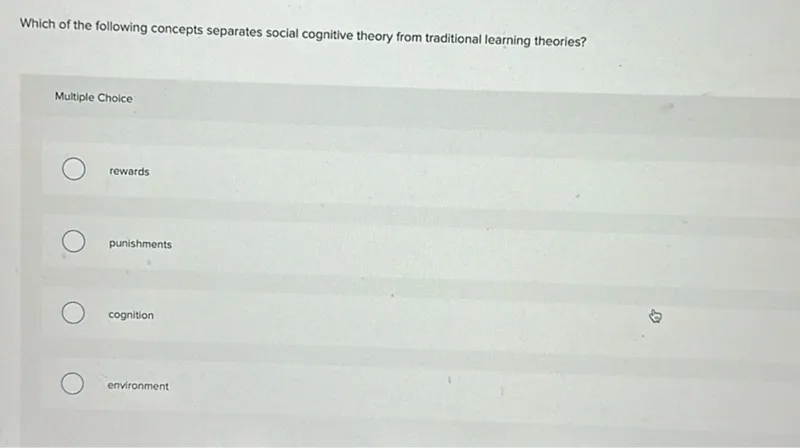The answer is cognition.
Traditional learning theories, such as behaviorism, emphasize the role of rewards in shaping behavior. Rewards are external stimuli that reinforce desired behaviors, but they are not unique to social cognitive theory.
Similar to rewards, punishments are also a key component of traditional learning theories. They are used to decrease the likelihood of undesirable behaviors. However, they do not distinguish social cognitive theory from traditional learning theories.
Cognition is the concept that separates social cognitive theory from traditional learning theories. Social cognitive theory, developed by Albert Bandura, emphasizes the role of cognitive processes in learning. It suggests that individuals can learn by observing others and that internal cognitive factors, such as beliefs, expectations, and attitudes, play a crucial role in the learning process. This focus on cognition is what differentiates it from traditional theories that primarily focus on observable behaviors and external stimuli.
The environment is a factor considered in both social cognitive theory and traditional learning theories. While social cognitive theory acknowledges the influence of the environment, it also incorporates cognitive processes, which is the key differentiator.






